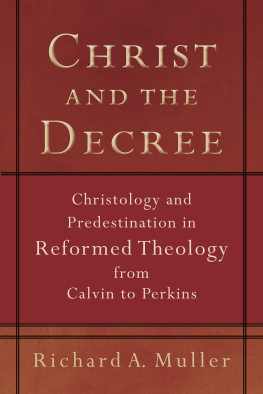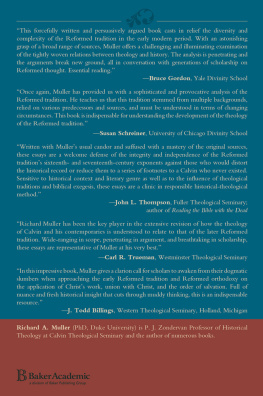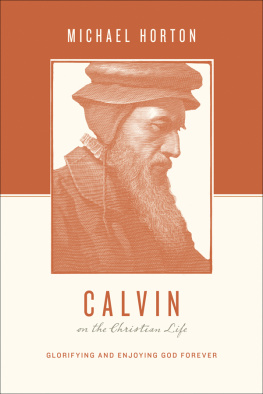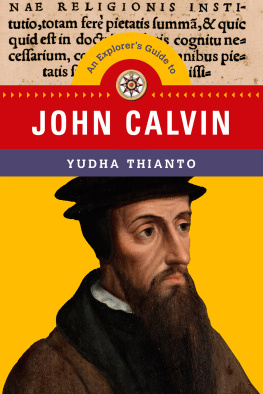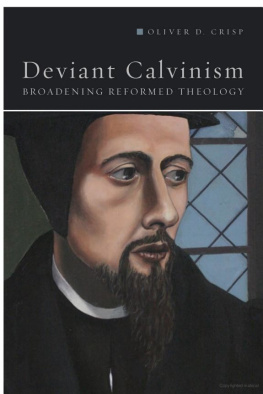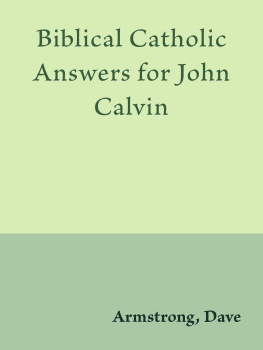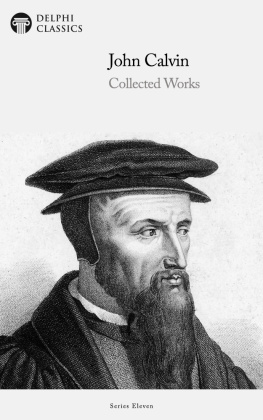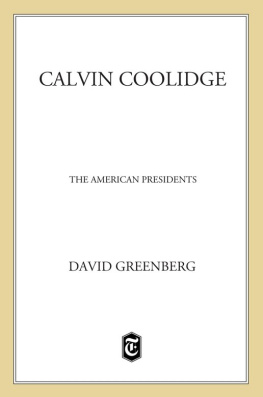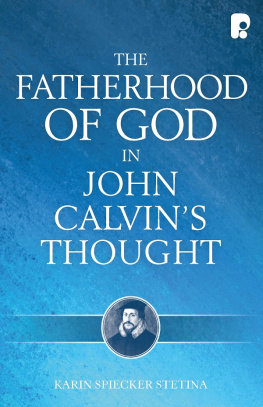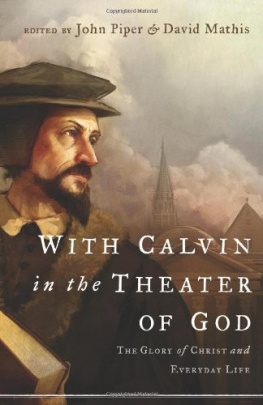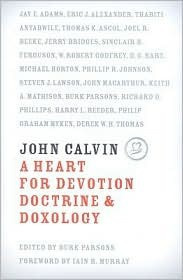Richard A. Muller - Christ and the Decree: Christology and Predestination in Reformed Theology from Calvin to Perkins
Here you can read online Richard A. Muller - Christ and the Decree: Christology and Predestination in Reformed Theology from Calvin to Perkins full text of the book (entire story) in english for free. Download pdf and epub, get meaning, cover and reviews about this ebook. year: 2008, publisher: Baker Publishing Group, genre: Religion. Description of the work, (preface) as well as reviews are available. Best literature library LitArk.com created for fans of good reading and offers a wide selection of genres:
Romance novel
Science fiction
Adventure
Detective
Science
History
Home and family
Prose
Art
Politics
Computer
Non-fiction
Religion
Business
Children
Humor
Choose a favorite category and find really read worthwhile books. Enjoy immersion in the world of imagination, feel the emotions of the characters or learn something new for yourself, make an fascinating discovery.
- Book:Christ and the Decree: Christology and Predestination in Reformed Theology from Calvin to Perkins
- Author:
- Publisher:Baker Publishing Group
- Genre:
- Year:2008
- Rating:5 / 5
- Favourites:Add to favourites
- Your mark:
- 100
- 1
- 2
- 3
- 4
- 5
Christ and the Decree: Christology and Predestination in Reformed Theology from Calvin to Perkins: summary, description and annotation
We offer to read an annotation, description, summary or preface (depends on what the author of the book "Christ and the Decree: Christology and Predestination in Reformed Theology from Calvin to Perkins" wrote himself). If you haven't found the necessary information about the book — write in the comments, we will try to find it.
Richard A. Muller: author's other books
Who wrote Christ and the Decree: Christology and Predestination in Reformed Theology from Calvin to Perkins? Find out the surname, the name of the author of the book and a list of all author's works by series.
Christ and the Decree: Christology and Predestination in Reformed Theology from Calvin to Perkins — read online for free the complete book (whole text) full work
Below is the text of the book, divided by pages. System saving the place of the last page read, allows you to conveniently read the book "Christ and the Decree: Christology and Predestination in Reformed Theology from Calvin to Perkins" online for free, without having to search again every time where you left off. Put a bookmark, and you can go to the page where you finished reading at any time.
Font size:
Interval:
Bookmark:
1986, 2008 by Richard A. Muller
Published by Baker Academic
a division of Baker Publishing Group
P.O. Box 6287, Grand Rapids, MI 49516-6287
www.bakeracademic.com
Ebook edition created 2012
Ebook corrections 07.23.2020
All rights reserved. No part of this publication may be reproduced, stored in a retrieval system, or transmitted in any form or by any meansfor example, electronic, photocopy, recordingwithout the prior written permission of the publisher. The only exception is brief quotations in printed reviews.
Library of Congress Cataloging-in-Publication Data is on file at the Library of Congress, Washington, DC.
ISBN 978-1-4412-3907-5
For Gloria
CONTENTS
PART I
REFORMED THEOLOGY IN ITS FIRST CODIFICATION:
The Systems of Calvin, Bullinger, Musculus and Vermigli
PART II
THE FORMULATION OF ORTHODOX SYSTEM:
Reformed Theology in Its Second Codification
PREFACE TO THE 2008 PRINTING
Our understanding of the relationship of the theology of the Reformers to the thought of later generations of Protestant theologians has altered considerably in the three and a half decades since I began research on the project that led to the publication Christ and the Decree . At that time, it would have been quite impossible to produce a collection of essays by diverse scholars in the field of Reformation studies in which the transition from the Reformation to Protestant orthodoxy would not have been laced with strongly stated dogmatic negatives describing the rise of a rigid biblicism and confessionalism, the problematic nature of scholasticism and Aristotelianism, and the development of predestinarian metaphysics as the central pivot of later Reformed thought. The situation has, however, changed. We have seen the publication of several scholarly symposia and a large number of dissertations, monographs, and articles that have not only taken issue with older models of interpretation but also, arguably, have so convincingly set aside the negative caricatures of Protestant orthodoxy that they persist only among the most historically blinded of dogmaticians.
I am also well aware that my own method and approach to the history of Reformed thought in the sixteenth and seventeenth centuries has changedhopefully for the better. If I were to write Christ and the Decree today, it would be a very different book. For one thing, it would have a clearer sense of the pervasive dogmatism of the older scholarship and, instead of couching its arguments in a rather theologized mode, would respond to the dogmatisms in a manner more closely suited to the thought of the sixteenth century: the conclusions of the study would be much the same, but the manner of reaching them would be different.
First, what remains the same: I continue to be convinced that the problem of Calvin against the Calvinists not only represents a significant dogmatic distortion of Calvins theology and that of later Reformed thinkers, pressing Calvin in a christocentric direction and the later thinkers in a speculative, metaphysical direction, resulting in the creation of a false contrast, but also draws on mistaken assumptions concerning the nature of scholasticism, the continued recourse to basically Aristotelian categories of thought throughout the era, and an exaggerated estimation of Calvins impact on the Reformed tradition. Scholasticism rightly understood is primarily a method, indeed, a method susceptible to being followed to dramatically differing results. Of course, as I have consistently indicated, method cannot be entirely separated from content; but the point is that the impact of scholastic method on the content of sixteenth- and seventeenth-century theology (as on the content of medieval theology) was not (and methodologically could not have been) the impact that the older scholarship claimed. A similar point needs to be made concerning the Aristotelian fourfold causality. Neither scholastic method nor Aristotelian causality produces some sort of determinism: one could be a scholastic Aristotelian predestinarian, but one could also be, just as easily, a scholastic Aristotelian semi-Pelagian.
I also continue to be convinced that a suitable evaluation of the Reformed theological tradition must set Calvin in the context of his Reformed contemporaries. Notable as formulators are Bullinger, Musculus, and Vermigli, but such writers as Viret, Hyperius, and Laski ought not to be neglected. I recognize that this approach has been regarded by some as a demotion of Calvin; but Calvin ought not to be regarded as the sole founder of the tradition that came to be called, through no connivance of his own, Calvinism. Certain aspects of that Reformed tradition certainly can be credited to Calvin, but the tradition as a whole, as it developed from the early sixteenth century onward, was always broader than Calvin and consistently drew more strongly on other formulators for other major elements of its theology. Bullinger and Musculus were more important than Calvin to the development of covenantal thinking (albeit not so different from Calvin as to be properly identified as the founders of an alternative Reformed tradition). Vermigli was certainly more important to the nuancing of such topics as predestination and free choice. It is also true that reading Calvins theology in the context of the thought of his contemporarieswhose work has been less persistently plowed than his and, therefore, less distorted to our view by the dogmatizing tendencies of so much twentieth-century historiographyclarifies the context and framework of meaning within which Calvins theology needs to be interpreted.
Second, to note a few specific shifts in my approach: I would not develop my arguments in the form of a comparative dogmatic model. Rather than attempting to match the christocentrism of the second-generation Reformers to the christocentrism of the early orthodoxy, I would identify the issue of christocentrism for what it isan anachronistic overlay of neo-orthodox dogmatic categoriesand set it aside as useless to the discussion. Neither Calvin and his contemporaries nor the later Reformed orthodox understood Christ as the epistemological principium of theology. They agreed that this principium was Scripture. All held that the center and focus of the work of salvation was Christ. The problem of so much of the older scholarship was that it read Calvins theology in a neo-orthodox manner and refused to extend this dubious honor to the writers of the seventeenth century. And, of course, since no one understood Christ as the epistemological foundation of theology, no one ever thought to replace Christ with predestinationas if an eternal divine decree often identified with the secret or hidden will of God could have been an epistemological foundation!
I would also take a rather different approach to the issue of the varied orders of argumentation and varied juxtapositions of doctrinal topics found in the theological compendia of the Reformers and their orthodox-era successors. I am more convinced than ever that, barring rather different definitions of doctrine, such differences in order and arrangement have more to do with the literary genres of works examined than with any implied theological messages. Much of the modern discussion of the theological implications of the structure of older theological works serves as an excuse to ignore the genres of the works in question, their actual theological content, and the historical context in which the works arose. Just as Calvins placement of predestination in book three of the Institutes does not render his theology less predestinarian and more christological, so does the placement of predestination in close relation to the doctrine of God in Amandus Polanus Syntagma theologiae not render his theology more predestinarian and less christological.
The approach found in my Post-Reformation Reformed Dogmatics volumes consciously incorporates materials from the exegetical and homiletical trajectories of Reformed thought, examines more of the philosophical background, and worries through contextual issues of the confessionalization or instutitionalization of Protestantism. It is also, intentionally, a more positive approach than that taken in Christ and the Decree. In short, when I finished Christ and the Decree I recognized that I had argued against the understanding of predestination as the central dogma or fundamental principle of the older Reformed theology and had identified Christologywhich is, at least according to twentieth-century argumentation, the chief competitor with the decrees for the title of central dogmaas an equal focus of theological formulation, with neither predestination nor Christology serving in the central dogma function. What I did not do was identify the foundations or principia that the older theology actually held to be its own nor did I state as clearly as I could have the datum that the very method of the older Reformed theology, the locus method, stood in the way of its adoption of anything like the central dogma approach of the nineteenth century. Most of these changes in approach have been incorporated into the Post-Reformation Reformed Dogmatics volumes and into my After Calvin .
Next pageFont size:
Interval:
Bookmark:
Similar books «Christ and the Decree: Christology and Predestination in Reformed Theology from Calvin to Perkins»
Look at similar books to Christ and the Decree: Christology and Predestination in Reformed Theology from Calvin to Perkins. We have selected literature similar in name and meaning in the hope of providing readers with more options to find new, interesting, not yet read works.
Discussion, reviews of the book Christ and the Decree: Christology and Predestination in Reformed Theology from Calvin to Perkins and just readers' own opinions. Leave your comments, write what you think about the work, its meaning or the main characters. Specify what exactly you liked and what you didn't like, and why you think so.

